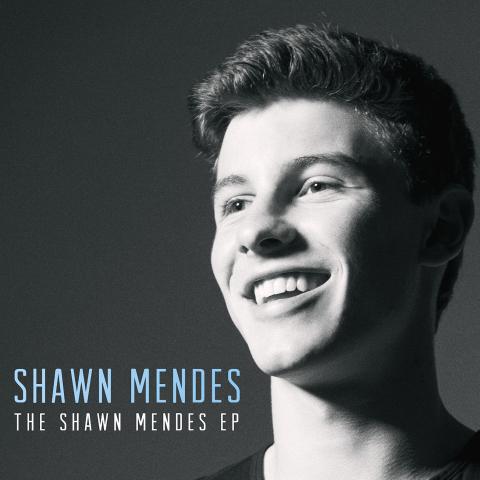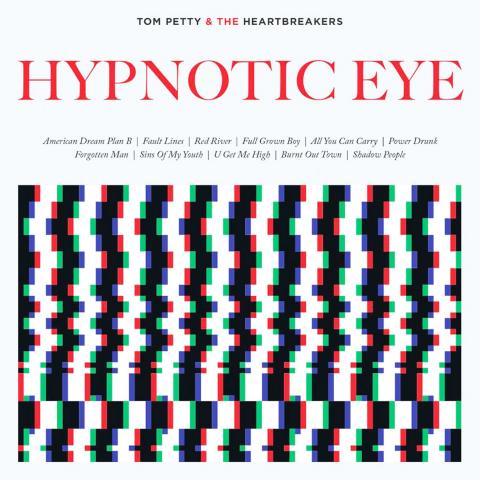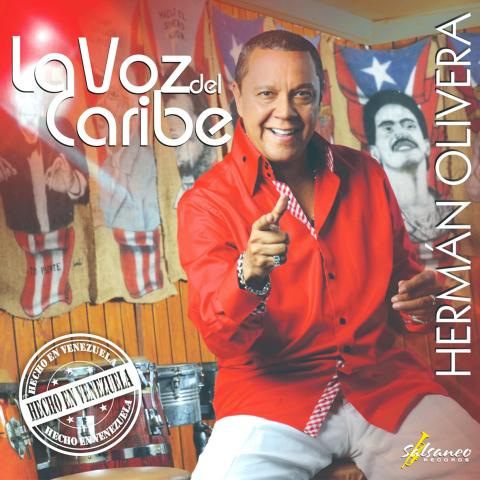The Shawn Mendes EP
Shawn Mendes
Island

In music, at least, earnestness is the currency that makes the Internet hum. Think of all those kids staring into cameras and singing their hearts out in hopes of a little attention, buskers with hats in hand. Their purposeful lack of artifice — yes, it’s a pose, but a vulnerable one. True self inside! Just press play!
Over the past couple of years, Shawn Mendes, a baby-faced 15-year-old from Toronto, has bared his soul repeatedly, especially on Vine, the microvideo app in which videos are limited to six seconds. He has 2.9 million followers on Vine, twice as many as on Twitter. He did these short clips by the bucketful — in any number of compilations on YouTube, you can watch them en masse in fan-compiled eight or 22-minute gulps. You know the routine: popular song, sweet kid, saccharine take, swooning fans.
Taken together, these videos reveal him as the teenager he is, a not-quite-formed talent who thinks vibrato makes him sound serious and falsetto makes him sound irresistible.

But earnestness is just about the worst thing you can carry with you into a pop music career — earnest attitude is one thing, earnest presentation and production something else entirely. That misunderstanding hovers over The Shawn Mendes EP (Island), Mendes’ first release on a major label, and his highest profile attempt at putting his tender voice to work on originals, not covers.
Consciously or not, the four songs here try to replicate the warm intimacy of Mendes’ videos. Take Life of the Party, his debut single, which rolls along on a bed of glum piano and argues that being yourself is true cool: “We don’t have to be ordinary/Make your best mistakes.” But Mendes sings it like a dirge. Because of the spare production, he sounds awfully alone — it’s depressing and dull.
There are tiny sparks of charm on Show Me a light, Jason Mraz-ish strummed number about how young people should be more empowered (“‘You’re way too short to get on this ride’/No, I’m not.”). But the only glimmers of complexity here are on The Weight, a dark song about being cheated on. Mendes is throttled by guitar here, but his lyrics are tart, and his voice aggrieved — he’s not just earnest, but also unvarnished.

But that’s the outlier moment. Generally this EP pitches Mendes as an emotional do-gooder, hawking a Disney aesthetic without a Disney system. But in an era of Justin Bieber’s moral collapse, of 5 Seconds of Summer’s boy-band pop-punk, teenagers are more than just vehicles for glowing benevolence. For Mendes to really grow, he’ll need to return some of the good will he’s been studiously earning.
— Jon Caramanica
Hypnotic Eye
Tom Petty and the Heartbreakers
Reprise
“Take what you can and leave the past behind,” Tom Petty advises in All You Can Carry, a song on Hypnotic Eye, his new album with his long-running band, the Heartbreakers. It’s not advice he follows himself.
The past matters a lot on Hypnotic Eye. There are the checkered pasts and iffy prospects of the songs’ narrators, and of the America where they live. And there’s the treasured musical past of the 1960s and 1970s; the band’s arrangements on Hypnotic Eye knowingly allude to the Rolling Stones, Neil Young, Traffic, the Byrds and Petty’s own early hits.
Petty shares four decades of the past with the Heartbreakers, including two members who have been with him since the band started in 1975: Mike Campbell on lead guitar and Benmont Tench on keyboards. Hypnotic Eye circles back to the lean, handmade sound of both the 1970s Heartbreakers and the band’s 2010 album, Mojo; it comes across as a band playing together in real time.
The new album is a return to lucidity after the sometimes generic blues-rock and haphazard lyrics of Mojo. Nearly every song on Hypnotic Eye puts its main riff right up front, followed by Petty clearly staking out characters and situations. American Dream Plan B opens the album with a just a drumbeat and distorted, choppy guitar chords, with Petty soon arriving to yowl: “I’m gonna make my way through this world someday/ I don’t care what nobody say.”
His characters aren’t worldbeaters. They’re older, wearier versions of the stubborn strugglers Petty has written about for decades. An apologetic lover in Sins of My Youth describes himself as “worn and wounded, but still the same.” In Fault Lines, a blues-rock rumba somewhere between the Doors and Los Lobos, Petty sings, “I got a few of my own fault lines/Running under my life.”
While each narrator pushes onward, the odds against him are rising. Burnt Out Town, a cackling blues-rocker, notes, “There’s ashes on Main Street/And the mayor is cooking the books.” In Shadow People, Petty sings about scary types like one gun-toting guy: “When he’s afraid/He’ll destroy everything he don’t understand.” As romance, ethics, community and the economy collapse, Petty and the Heartbreakers offer two old-fashioned bulwarks: the solidarity of the band and the sinewy construction of the songs.
— Jon Pareles
La Voz del Caribe
Herman Olivera
Salsaneo
When you work in an art form that has grown, flourished and thinned out, you can be both in it and above it; you can explain its importance and demonstrate its vitality at the same time.
Herman Olivera, a Newark, New Jersey-born singer with Puerto Rican roots, is a sonero. He’s part of a nearly century-old tradition of improvising vocalists in Afro-Latin music; it produced, before the commercial incursion of salsa romantica in the mid-’80s, several apotheoses in Cuba, Puerto Rico and New York, through the voices of singers like Benny More, Ismael Rivera, Celia Cruz and Hector Lavoe. All of those names enter the lyrics of La Voz del Caribe, Olivera’s new album; it’s a kind of textbook for his genre, mapping out the aims and dimensions of his art and making it happen.
You may know him as a singer with other people’s bands over the past few decades, including Manny Oquendo’s Conjunto Libre and Eddie Palmieri’s La Perfecta II. Olivera is now making solo albums in Venezuela for a Seattle-based label, Salsaneo, with arrangements by the Venezuelans Willie Melo and Julio Estrada; this is the second, and they are straight-down-the-middle, hard-salsa throwbacks.
El Son de Herman explains his art — the discipline of rhyme, the rule of not repeating yourself — but El Heredero del Sabor makes his case. “I am the heir,” he sings in Spanish, “of the great soneros I carry in my heart.” He goes through them individually, with a detail about what each imparted to him; they include Lavoe, Rivera, and Chamaco Ramirez.
The improvisations, in the second half of these songs — about love, family, the economy and music — are the stars of the record. The brass section and the regular rhythmic grid of written lyrics falls away, and there’s Olivera over the rhythm section, stretching out a few syllables or navigating lots of them, in a back-and-forth with a vocal chorus. But whether he’s making up lyrics or not, he swings each line, and makes the shape of the melody sound determined on the spot, dragging against the beat and ending each stanza with a light shake.
— Ben Ratliff

While Americans face the upcoming second Donald Trump presidency with bright optimism/existential dread in Taiwan there are also varying opinions on what the impact will be here. Regardless of what one thinks of Trump personally and his first administration, US-Taiwan relations blossomed. Relative to the previous Obama administration, arms sales rocketed from US$14 billion during Obama’s eight years to US$18 billion in four years under Trump. High-profile visits by administration officials, bipartisan Congressional delegations, more and higher-level government-to-government direct contacts were all increased under Trump, setting the stage and example for the Biden administration to follow. However, Trump administration secretary

In mid-1949 George Kennan, the famed geopolitical thinker and analyst, wrote a memorandum on US policy towards Taiwan and Penghu, then known as, respectively, Formosa and the Pescadores. In it he argued that Formosa and Pescadores would be lost to the Chine communists in a few years, or even months, because of the deteriorating situation on the islands, defeating the US goal of keeping them out of Communist Chinese hands. Kennan contended that “the only reasonably sure chance of denying Formosa and the Pescadores to the Communists” would be to remove the current Chinese administration, establish a neutral administration and

A “meta” detective series in which a struggling Asian waiter becomes the unlikely hero of a police procedural-style criminal conspiracy, Interior Chinatown satirizes Hollywood’s stereotypical treatment of minorities — while also nodding to the progress the industry has belatedly made. The new show, out on Disney-owned Hulu next Tuesday, is based on the critically adored novel by US author Charles Yu (游朝凱), who is of Taiwanese descent. Yu’s 2020 bestseller delivered a humorous takedown of racism in US society through the adventures of Willis Wu, a Hollywood extra reduced to playing roles like “Background Oriental Male” but who dreams of one day

Burnt-out love-seekers are shunning dating apps in their millions, but the apps are trying to woo them back with a counter offer: If you don’t want a lover, perhaps you just need a friend? The giants of the industry — Bumble and Match, which owns Tinder — have both created apps catering to friendly meetups, joining countless smaller platforms that have already entered the friend zone. Bumble For Friends launched in July last year and by the third quarter of this year had around 730,000 monthly active users, according to figures from market intelligence firm Sensor Tower. Bumble has also acquired the